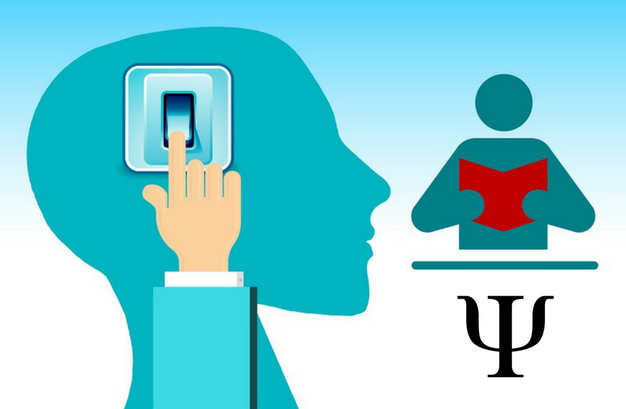For a Child, Being Carefree
Is Intrinsic to a Well-Lived Life
Dr. Luara Ferracioli

Some people are lucky enough to look back at their childhood with affection for a time in life without much stress and anxiety. They might think of long hours spent playing in the backyard free of worry, or pursuing projects and relationships without apprehension or fear. Such tender memories are often in stark contrast to the lives many lead as adults, where stress and anxiety seem to dominate.
The fact that many struggle to be carefree in adulthood raises a number of interesting questions about the relationship between carefreeness and the good life. Is being carefree a special good of childhood? Is it something that confers meaning on the life of a child, without doing the same for adults? Or do adults need to be more carefree, and so be more like children, in order for their lives to go well? Most importantly, if carefreeness is indeed a necessary precondition for a good life, why exactly is that so?
As a parent of two young children, and someone who works on family philosophy, I have recently turned my attention to the question of what it means for childhoods to go well. Thinking about the goods of parental love and education, I have realised that there is something special about being carefree that makes it a necessary component of a well-lived childhood. Yet when it comes to adults, I have found that some can lead wonderful, meaningful lives without being carefree.
Such asymmetry between childhood and adulthood is a result of children and adults being different kinds of creatures. Unlike an adult, a child doesn’t have the authority to endorse the valuable goods in her life, if positive emotions towards these goods are lacking. This means that if a child is experiencing stress and anxiety, she will lack the mental space needed for positive emotions towards valuable projects and relationships to arise. As a result, the child will be in a position where such projects and relationships don’t count as constitutive goods.
To see why children’s lives are necessarily impoverished if they aren’t carefree, when the same is not true of adults, we first need to get our definitions clear: who counts as a child, what does carefreeness amount to, and what does it mean for human lives to go well? A child is a creature who has already started developing practical reasoning skills, but not developed them to a degree such that she can take on some of the rights and responsibilities of adulthood. Childhood then is that stage of life that follows infancy and ends before adolescence. I refer to carefreeness as a disposition not to feel stressed and anxious, even though there will be moments in a person’s life where such negative emotions are present. A carefree person is therefore someone who doesn’t experience stress and anxiety very often, both as a result of her psychology and of her personal circumstances.
Finally, when thinking about what it means for people to lead good lives, I endorse so-called ‘hybrid accounts of wellbeing’: a good life is one where a person engages with valuable projects and relationships, and finds them attractive. For example, philosophy will contribute to my leading a good life if it’s true that philosophy is valuable (where its value is not a function of my attitudes but rather something else internal to philosophy) and if it’s true that I endorse philosophy as a profession. In a world where philosophy is a profoundly misguided enterprise or where I would rather be doing something else with my time, philosophy ceases to contribute to my leading a good life.
So much for preliminaries. The question we must now address is: how is carefreeness necessary for a good childhood without also being necessary for a good adulthood?
Let’s start with adults. Unlike children, adults can appreciate the valuable projects and relationships in their lives even when positive emotions are lacking. This is because adults are the sorts of creatures who can endorse many aspects of their lives merely due to how well they fit within their overall conception of what a worthwhile life looks like. A neurotic author who writes brilliant novels despite finding the process painful can still endorse the project of writing under stress and anxiety because she knows that these negative emotions will render the work deeper than it would otherwise be. A brain surgeon operating on the worst types of cancers knows that the stakes in her job are too high for her to approach life in a carefree manner. She is willing to trade carefreeness for a life of achievement in medicine.
In fact, we can evaluate the lives of adults who are not carefree as positive precisely because we know that an adult’s more complex evaluative capacities (eg, for self-reflection; to acquire relevant moral knowledge; to maintain an adequate sense of time; to recognise foreseeable costs, risks and opportunities attached to certain actions, etc) allow her to endorse valuable projects and relationships even when positive emotions towards them are lacking.
The same is not true of children. Although they also need to endorse the valuable projects and relationships in their lives for these to qualify as contributions to living well, an endorsement in their case arises when children feel positive emotions towards such projects and relationships. Children simply lack the requisite evaluative capacities to be able to endorse valuable projects and relationships merely due to how well they fit within an overall life plan.
A child who volunteers to care for a relative with dementia for a couple of hours a day can’t authoritatively endorse such a project if she finds it stressful. Unlike the writer or the doctor who can step back to evaluate how stressful projects fit with her overall conception of a good life, and then authoritatively endorse them, a child’s evaluative capacities are not sufficiently mature and developed for her to do the same. She is therefore unable to assess such caring obligations against a background of adequate self-knowledge, realistic sense of competing options, sufficient level of moral knowledge, and adequate understanding of the costs, risks and opportunities involved. That’s why she might end up, say, giving unreasonable weight to pleasing her family, or making a mistake about what morality requires. She might also have no sense of the opportunity costs involved, and not appreciate that time caring for this relative will take away precious time doing something else that is both valuable and enjoyable. Such mistakes are not avoidable but a direct result of the kind of creature a child is – a creature who is not yet in a position to go ahead with stressful and anxiety-inducing projects because she is able to produce authoritative reasons in their favour.
The question now arises: is it possible for a child to be not carefree in general yet still feel positive emotions towards valuable projects and relationships? Work by psychologists such as Ed Diener, professor emeritus at the University of Illinois, suggests that positive and negative emotions are not independent from each other at any given point in time. This means that these emotions tend to suppress each other, and that the more stress and anxiety a child feels, the less mental space she will have for the development of positive emotions towards valuable projects and relationships. Therefore, a child who isn’t carefree lacks the mental space required for the enjoyment of all the good things in her life.
If we want children to endorse play time, education, friendships and familial relationships by feeling joy, pleasure, amusement and delight towards them – and so lead good lives as children – then we’d better create the conditions for children not only to access such goods but also to be carefree. This, in turn, requires governments that are willing to take mental health seriously from an early age and create policies that put carefreeness centrestage of what it means for a childhood to go well.![]()
This article was originally published at Aeon and has been republished under Creative Commons.
Hope you enjoyed learning about carefreeness. Want to read more great articles?
See following link to check out a fascinating collection of psychology articles by leading academics and researchers.
This Psychology Symbol - Vintage Retro Striped Sunset T-Shirt is available from Amazon (prime eligible) in a range of colors for women and men. Sales help support this website, which has been providing free and comprehensive information and resources for psychology students and educators since 2008.
Recent Articles
-
Psychological Impact of Catastrophic Injury & Recovery
Feb 17, 26 02:26 AM
Explore the psychological impact of catastrophic injury, including trauma, identity shifts, resilience, and long-term mental health recovery. -
Psychology Articles by David Webb
Feb 10, 26 06:31 AM
Discover psychology articles by David Webb, featuring science-based insights into why we think, feel, and behave the way we do. -
Music and Memory: How Songs Shape Identity, Emotion, and Life Stories
Feb 10, 26 06:25 AM
How music and memory intertwine to preserve identity, evoke emotion, and anchor life stories. A psychological look at playlists, nostalgia, and the brain.
Know someone who would love to read this article on carefreeness? Share this page with them.
Please help support this website by visiting the All About Psychology Amazon Store to check out an awesome collection of psychology books, gifts and T-shirts.
Go From Carefreeness and the Good Life Back To The Home Page







